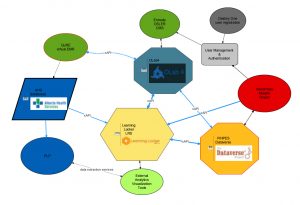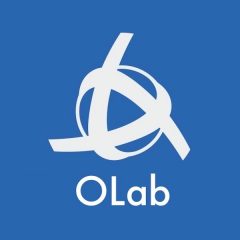As we move forwards in the Precision in Health Professional Education Scholarship (PiHPES) project, we are setting a whole bunch of related servers and services, under the good auspices of the University of Calgary IT teams.
The purpose of PiHPES is to explore greater integration across education information systems in general, particularly in the area of activity metrics. We are all tired of being surveyed to death – rather than completing more forms and evaluations of learner performance, we are looking for better ways to measure and study their various activities as they learn and work.

Activity metrics are central to this approach, and we are focusing on the introduction of the Learning Records Store (LRS) as a collating mechanism across various systems. We have already been successful in integrating activity streams across many of our existing educational information tools, using xAPI and the LRS.
To support the next phases of the PiHPES Project, we are setting up a number of services:
- OLab web site — WordPress web site for public facing aspects of OLab related projects and services
- OLab4 demo — demo level server for OLab4 virtual scenarios
- Learning Locker LRS — high capacity Learning Records Store.
- PiHPES Dataverse — open data repository
- OLab4 prod — production level server for OLab4 virtual scenarios
- Moodle test — Moodle test bed, with full plugin access.
- Drupal 8 test — test bed for Drupal 8 integration.
- Secure OLab4 — OLab4 virtual scenarios with level 4 content security.
- Secure LRS — LRS that can store datasets at level 3 security
These will all be standard instances of their respective web services, as we hope to use this setup as a demonstration for other groups who wish to explore cross-application activity metrics.
The software applications involved are all open-source:
The last two servers, noted as “secure” servers, are installed behind more secure firewalls. We anticipate that these may contain potentially identifiable data, such as health related data. Accordingly, they will need to conform to the higher level 3 and 4 requirements for data protection at UofC.

